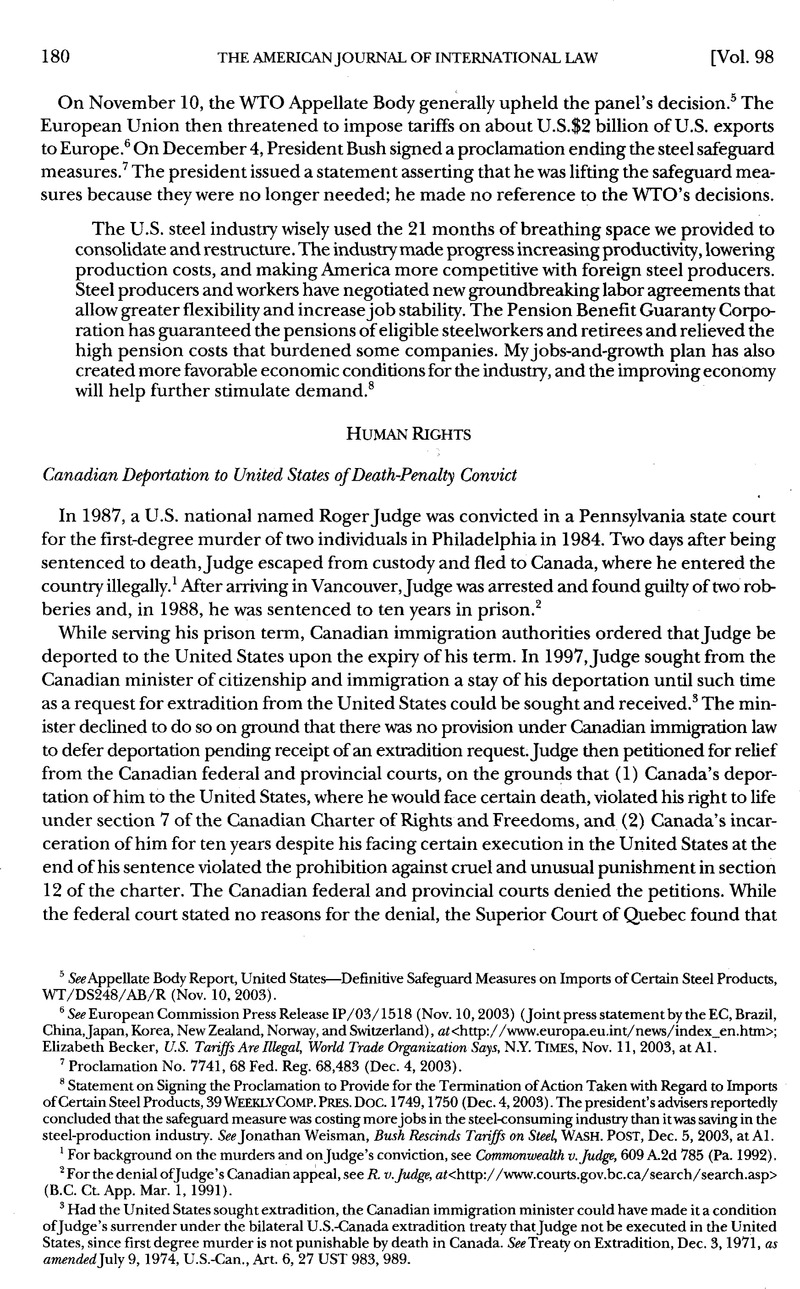No CrossRef data available.
Published online by Cambridge University Press: 10 March 2017

1 For background on the murders and on Judge’s conviction, see Commonwealth v. Judge, 609 A.2d 785 (Pa. 1992).
2 For the denial of Judge’s Canadian appeal, see R. v. Judge, a«http://www.courts.gov.bc.ca/search/search.asp> (B.C. Ct. App. Mar. 1, 1991).
3 Had the United States sought extradition, the Canadian immigration minister could have made it a condition of Judge’s surrender under the bilateral U.S.-Canada extradition treaty that Judge not be executed in the United States, since first degree murder is not punishable by death in Canada. See Treaty on Extradition, Dec. 3, 1971, as amended July 9, 1974, U.S.-Can., Art. 6, 27 UST 983, 989.
4 Judge, v. Minister of Citizenship & Immigration, 1998 Carswell Que. 2906, 1998 WL 1732172, at para. 18 (Que. C.S.Aug. 6, 1998).
5 Id., para. 17.
6 See Commonwealth v. Judge, 797 A.2d 250 (Pa. 2002).
7 International Covenant on Civil and Political Rights, Dec. 16, 1966, 999 UNTS 171, 6 ILM 368 (1967) [hereinafter ICCPR]. The first optional protocol, Dec. 16, 1966, 999 UNTS 302, 6 ILM 383 (1967), allows states to submit themselves to a system of investigation and quasi-adjudication of individual complaints by the Human Rights Committee. Canada is a party to the first optional protocol, whereas the United States is not.
8 UN Human Rights Committee, Views on Communication No. 829/1998, UN Doc. CCPR/C/78/D/829/1998, para. 10.2 (Aug. 13, 2003).
9 Id., para. 10.4. Canada has abolished the death penalty as a matter of its national law, but has not ratified the ICCPR’s second optional protocol, GA Res. 44/128 (Dec. 15, 1989), 29 ILM 1464 (1990), on the abolition of the death penalty.
10 See Views on Communication No. 829/1998, supra note 8, para. 10.9.
11 Id., para. 12.